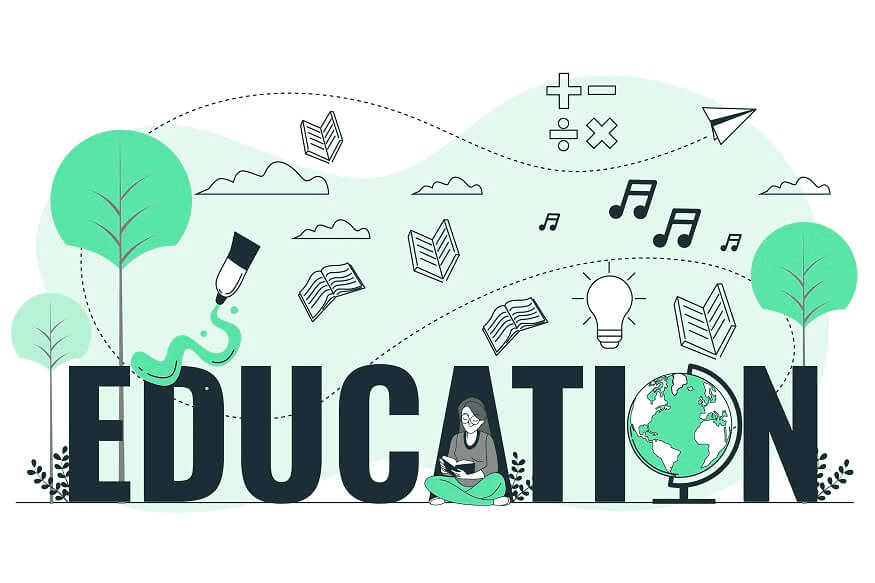How Value-Based Education Prepares Students for Real-World Challenges
Introduction
In an age of rapid technological advancement, social disruption, and global uncertainty, academic qualifications alone no longer define a successful individual. Students today must be emotionally intelligent, socially responsible, and morally grounded to thrive in the real world. This is where value based education plays a pivotal role.
Value-based learning is not just about teaching right and wrong—it is about nurturing compassionate, ethical, and confident individuals who can handle real-life challenges with grace and integrity. Schools that embrace this philosophy are not only shaping brighter minds but also building better human beings.
The Growing Importance of Value-Based Education
Why is it more relevant today than ever before?
Moral Compass in a Complex World:
In a world filled with ethical dilemmas, students need the ability to distinguish right from wrong. The importance of value education lies in building a strong moral foundation that guides choices in personal and professional life.
Developing Emotional Intelligence:
Beyond IQ, emotional intelligence (EQ) helps students manage emotions, handle relationships, and make empathetic decisions. Value based education fosters these emotional skills from a young age.
Civic and Social Responsibility:
A values-oriented curriculum encourages students to understand societal issues and become proactive citizens, contributing meaningfully to their communities.
Reducing Behavioral Issues:
Schools focusing on values based education curriculum see lower instances of bullying, disrespect, and indiscipline, as students learn to value themselves and others.
How Value-Based Learning Prepares Students for the Real World
Academic excellence is important, but how students respond to adversity, collaborate with peers, and make ethical decisions matters even more in life. Here's how value based learning helps:
-
Fosters Ethical Decision-Making
Students face countless decisions throughout their lives.
A value-based approach trains them to evaluate consequences and choose what’s right—not just what’s easy or popular. -
Builds Resilience and Adaptability
Real-world problems often lack clear solutions.
By learning perseverance and empathy, students are better equipped to cope with failures and adapt to changing environments.
- Promotes Teamwork through Collaborative Learning
In a digitally connected world, working in teams is essential.
Collaborative learning models help students share ideas, resolve conflicts, and respect different perspectives.
- Develops Leadership Skills
Leaders aren’t just those who top academics—they inspire and influence others.
Value based education nurtures leadership qualities rooted in integrity, responsibility, and compassion.
- Enhances Conflict Resolution Abilities
In both personal and professional spaces, conflicts are inevitable.
Students trained in value-based principles are more capable of resolving disputes peacefully and respectfully.
Best School Features That Promote Value-Based Learning
Not all schools are created equal. Parents looking for holistic education should seek institutions that intentionally embed value based education into their framework. Here's what to look for:
- Integrated Curriculum
The values based education curriculum is not taught in isolation.
Values are seamlessly integrated across all subjects and classroom discussions.
- Mentorship and Role Models
Teachers are trained not just to educate, but to inspire.
Faculty members embody the values they teach, becoming mentors and ethical guides.
- Community Engagement Programs
The best schools include outreach and community service as part of their routine.
This teaches empathy, gratitude, and responsibility.
-
Diverse Extracurricular Activities
The best school for extracurricular activities offers clubs, arts, sports, and leadership forums that instill teamwork, discipline, and creativity. -
Use of Technology for Values Education
With Edtech collaborative learning, students use digital tools to simulate real-world scenarios, working together to solve ethical dilemmas or community challenges. -
Peer Learning and Group Projects
Activities that involve peer interaction encourage respect, active listening, and appreciation of diverse viewpoints.
Why the Best Schools in India Prioritize Values
Leading institutions across India now recognize that education must go beyond textbooks. The best schools in India have embraced value based learning as a core component of their pedagogy.
These schools understand that academic success without values can be detrimental to society.
They cultivate environments where students thrive academically while also learning the importance of human values in education.
These schools produce not just professionals, but changemakers—individuals who lead with purpose and empathy.
FAQs
Q1. What is value based education and why is it important?
A: Value based education teaches life skills like compassion, integrity, and responsibility. It helps students make ethical choices and become better citizens.
Q2. How does value education prepare students for real-world challenges?
A: It equips students with decision-making, problem-solving, emotional intelligence, and collaboration skills needed to handle real-life situations effectively.
Q3. Can academic excellence and value education go hand-in-hand?
A: Absolutely. In fact, value based learning enhances academic performance by promoting discipline, focus, and motivation.
Q4. What are examples of value-based activities in schools?
A: Peer mentoring, community service projects, group discussions on moral dilemmas, and storytelling sessions that highlight ethical behavior.
Q5. Are there any tools or platforms that support value-based education?
A: Yes. Many schools now use Edtech collaborative learning tools that simulate real-world challenges, encouraging teamwork and values-based problem solving.
Conclusion
In a world that constantly evolves, value based education is the anchor that keeps students grounded. It instills not only knowledge but also the wisdom to use it meaningfully. The future belongs to those who are not just smart, but kind, ethical, and collaborative.
When selecting a school, don’t just focus on rankings or infrastructure. Choose institutions that invest in value-based learning, foster collaborative learning environments, and offer the best school features including rich extracurricular activities. These are the schools that truly prepare children for life.

